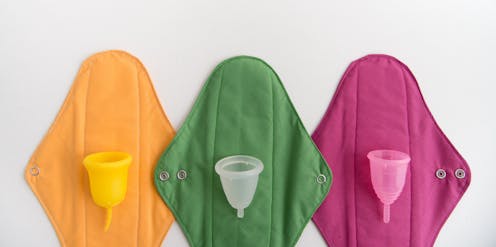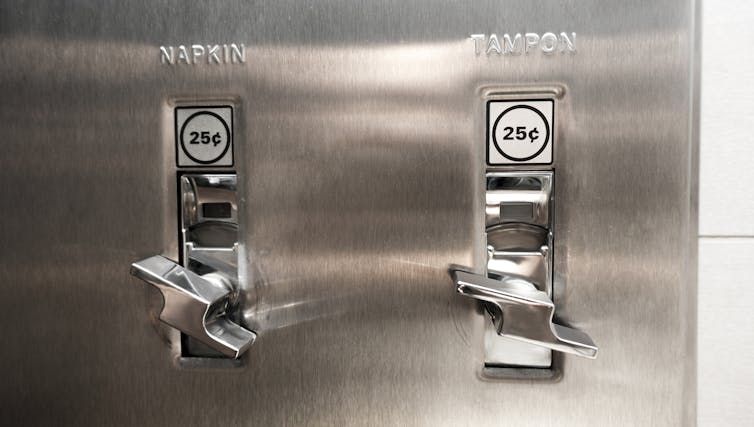
Over the past years, activists have made important gains in the effort to provide people who menstruate with adequate and free supplies.
In Canada, all washrooms in federally regulated workplaces must have period supplies. In Manitoba, period supplies are offered to students in all public schools in a three-year initiative through a corporate partnership and charitable donation.
Further from home, Scotland became the first country to make period products free to all in 2020, and more recently, to our south, Minnesota’s initiative to make menstrual products free in schools has made headlines.
Yet, despite these advances, menstruation continues to shape lives in negative ways and diminish opportunities for many of those who experience it. Providing free supplies in some places — while necessary in the movement towards equity — is only part of the story.
Shifting the conversation from period poverty to menstrual justice is an important step. Menstrual justice is about ensuring that all people who menstruate be provided with the resources and infrastructure to do so safely and with dignity.

(Shutterstock)
Table of Contents
Menstrual justice
A recent project by the Centre for Human Rights Research explored menstrual justice at the University of Manitoba. While our project centred on the experiences of students, staff and faculty on the campus, questions of menstrual justice are important wherever people who menstruate live, work or study.
For example, rural, remote and northern communities have especially pressing issues of menstrual justice and equity. So do those who menstruate while incarcerated. Growing research on the politics of menstruation in Canada led by scholars like sociologist Lisa Smith and the Menstrual Cycle Research Group help us understand the intersectional experiences of menstruation — how people’s experiences of menstruation are affected by varied aspects of their identities and lived experiences — and find ways to build menstrual equity and justice.
University of Manitoba study
Researchers, student research assistants and volunteers with our project audited a total of 503 washrooms (1,074 bathroom stalls) in 86 buildings in Fall 2023.
Our audit captured the university at a moment when access to free menstrual supplies had expanded, thanks to student advocacy and a groundbreaking pilot project providing free menstrual supplies in some high-traffic campus washrooms. Despite this, our team found the campus had limited resources in washrooms designated as female, and none in washrooms designated as male.
Period supplies were freely available in only 15 of the 503 audited washrooms (about three per cent). Coin-operated dispensers were available in an additional 43 washrooms, and yet 27 of those dispensers were empty (often due to proprietary relationships with dispenser and companies servicing the dispensers going out of business), or malfunctioning.
Our project included a survey completed by students, staff and faculty. Half (50.5 per cent) of survey respondents earned an annual income of below $20,000. It is difficult for low-income people to cover the costs of managing menstruation, which can include pads, tampons, reusable cups, period underwear and pain management. These difficulties are exacerbated in a context of rising inflation.
Read more:
Menstrual cups vs tampons – here’s how they compare
Missing work, class for menstruation
Those who work or study at the university feel these limited supplies and infrastructure in a range of ways. For instance, 850 respondents to our survey shared that they had to miss work or class to manage menstruation.
Menstrual injustice and inequality, on campus or elsewhere, is about more than cost. It is also about stigma and inequalities in menstrual health and education. We heard stories of missed assignments and of working through debilitating symptoms with little to no understanding from professors or supervisors.
We heard multiple instances of people experiencing leaks and having to wait after a class was finished to clean stains on chairs or borrow clothing to cover stains.
Long bathroom lines, no time between class
Having to seek permission to use washrooms to manage bleeding were commonplace, as was encountering long lines in bathrooms with no time between classes with which to adequately care for bleeding. Respondents using terms such as “humiliating” or “mortifying” when recalling the experiences. The lack of access to supplies and ongoing stigma hampers opportunities and is an issue not only of period equity, but of educational equity.
The ready availability of period supplies and adequate infrastructure tells us a great deal about who a space is for: who is welcome, supported and safe. Moving toward menstrual justice means providing free products, but also building adequate numbers of washrooms — facilities that welcome people with different gender presentations — and ensuring ready access to sinks and soap needed to wash reusable products with dignity.
Raising questions of access and equity to period supplies raises other questions of access, including around gender identity, ability and child-care responsibilities. Inequalities are interconnected, and so are mechanisms that help address them. For example, respondents in our survey not only mentioned period supplies and infrastructure, but also a lack of baby change tables or sharps disposal sites, as well as non-accessible washrooms.
Inequalities of managing menstruation
The inequalities of managing menstruation without adequate supplies or infrastructure cannot be ameliorated by donations of period supplies, or tampon boxes with glossy graphics about period poverty.
One small but important step toward menstrual justice would be to have public and educational institutions and businesses budget for and provide period supplies just as they do routine hygiene products that are freely available in washrooms, including soap, paper towels and toilet paper. Another would be to provide sufficient facilities for all menstruators.
We need menstrual justice and equity rather than charity.
![]()
Julia Smith receives funding from the Social Sciences and Humanities Research Council of Canada.
Adele Perry, Lindsay Larios, and Pauline Tennent do not work for, consult, own shares in or receive funding from any company or organisation that would benefit from this article, and have disclosed no relevant affiliations beyond their academic appointment.























